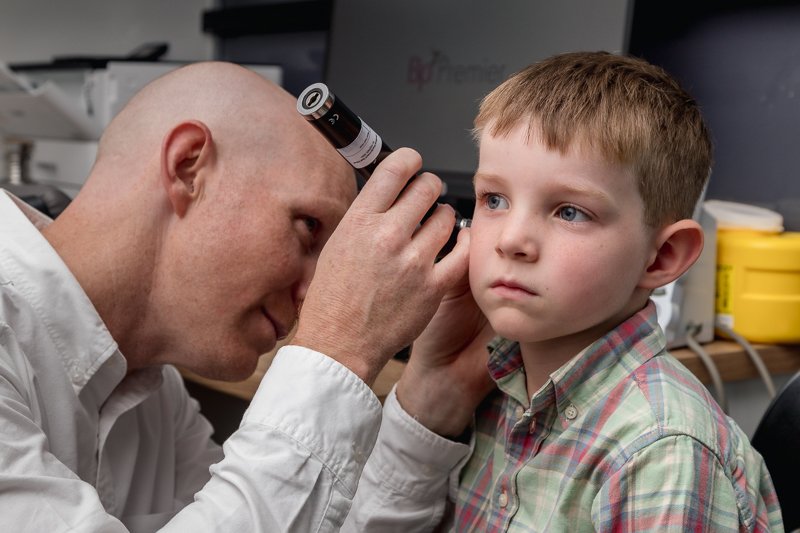Everything You Need to Know About High Cholesterol
Cholesterol is a waxy, fat-like substance our body needs for the formation of cells, certain hormones and vitamin D. Our body produces cholesterol and it’s also found in some foods. There are both good and bad types of cholesterol in our body. If we produce too much of the bad cholesterol, it can lead to many health problems, including heart attack or stroke.
Although bad for our bodies, high cholesterol usually causes no symptoms, unless at very high levels. That’s why it’s important to get your cholesterol levels checked regularly.
LDL cholesterol (bad cholesterol)
LDL or Low-density lipoprotein makes up most cholesterol. It is considered bad because it can stick to the walls of arteries and can cause a build-up called plaque. Too much plaque can lead to blockages that prevent blood from flowing properly to the heart.
If your blood contains too much LDL cholesterol, it’s known as high cholesterol.
HDL cholesterol (good cholesterol)
HDL or High-density lipoprotein is considered good for our bodies because it carries LDL away from the arteries and back to the liver to be broken down and then passed as waste.
Leading risk factors of high cholesterol
While there is no single cause for high cholesterol, there are some leading risk factors for developing it. These include:
Smoking - Cigarette smoke damages the walls of your blood vessels, which makes them more prone to accumulate fatty deposits. Smoking can also lower your level of HDL cholesterol.
Diabetes - High blood sugar can damage the lining of your arteries. It also contributes to higher levels of dangerous cholesterol called very-low-density lipoprotein (VLDL) and lower HDL cholesterol.
Obesity - Having a body mass index (BMI) of 30 or greater puts you at risk of high cholesterol.
Other causes of high cholesterol
There are other factors that influence the chances of developing high cholesterol too. These include:
Diet - eating a lot of unhealthy foods (particularly those high in fat and salt) can contribute to high cholesterol in the body.
Lifestyle habits - lack of exercise and excessive alcohol consumption can lead to the development of high cholesterol.
Genetics - genetics can play a role too. Sometimes your specific genetic makeup can keep cells from removing LDL cholesterol from your blood efficiently, or it can cause your liver to produce too much cholesterol. Family history of high cholesterol also puts you at greater risk.
Complications of high cholesterol
If left untreated, high cholesterol can lead to many health problems, including:
Heart attack - high cholesterol can cause plaque build-up in your arteries. A blood clot can form if plaque tears or ruptures. This can block the flow of blood to your heart, or travel through your arteries and cause a blockage in a different location. A heart attack occurs when blood flow to part of your heart stops.
Stroke - similar to a heart attack, a stroke occurs when a blood clot blocks blood flow to part of your brain.
Angina - Angina is a chest pain which results from reduced blood flow to the heart. A lack of blood flow means your heart muscle isn’t getting enough oxygen. The pain is often triggered by physical activity or stress. Having high cholesterol puts you at greater risk of experiencing angina.
High blood pressure - High blood pressure and high cholesterol are often linked. When the arteries become narrowed with plaque build-up, the heart has to strain much harder to pump blood through them. This causes blood pressure to become high.
Peripheral vascular disease - having high cholesterol can increase your risk of developing Peripheral vascular disease (PVD). This causes the blood vessels outside of your heart and brain to narrow, block and spasm. PVD typically causes pain and fatigue which is often felt in the legs, especially during exercise.
Chronic kidney disease - as well as causing heart disease, having high cholesterol can also lead to kidney disease. Cholesterol plaque can clog the renal arteries and cut off blood flow to the kidneys. This results in loss of kidney function
How high cholesterol is diagnosed
High cholesterol rarely results in any obvious symptoms. For this reason, a blood test is the only way to diagnose high cholesterol. Cholesterol is measured with a blood test called a lipid panel. This test can help determine your risk of atherosclerosis, which is a build-up of plaque that narrows or blocks arteries.
Target cholesterol levels vary based on factors such as age and family history.
How to lower your cholesterol levels
If you have high cholesterol, there are ways to lower your levels and reduce your risk of further complications. The first approach is typically making lifestyle changes before retesting again. This includes changes to your diet, stopping smoking, and increasing exercise. If lifestyle changes are not working or not appropriate for you, medication is usually prescribed. The most common type of cholesterol-lowering medications is called statins. They lower the level of LDL cholesterol in your blood and help to reduce your chance of further issues.
How to prevent high cholesterol
As with many other conditions, preventing high cholesterol from occurring in the first place is better than a ‘cure’ because of the range of controllable risk factors. To prevent high cholesterol, you should:
Eat a nutritious diet low in fat and salt
Avoid excessive alcohol consumption
Quit or avoid taking up smoking
Ensure you get regular exercise
Manage your stress levels.
If you think you may be at risk of high cholesterol levels, or if you haven’t had your cholesterol levels checked recently, contact your GP today.
Disclaimer
All information is general in nature. Patients should consider their own personal circumstances and seek a second opinion.






